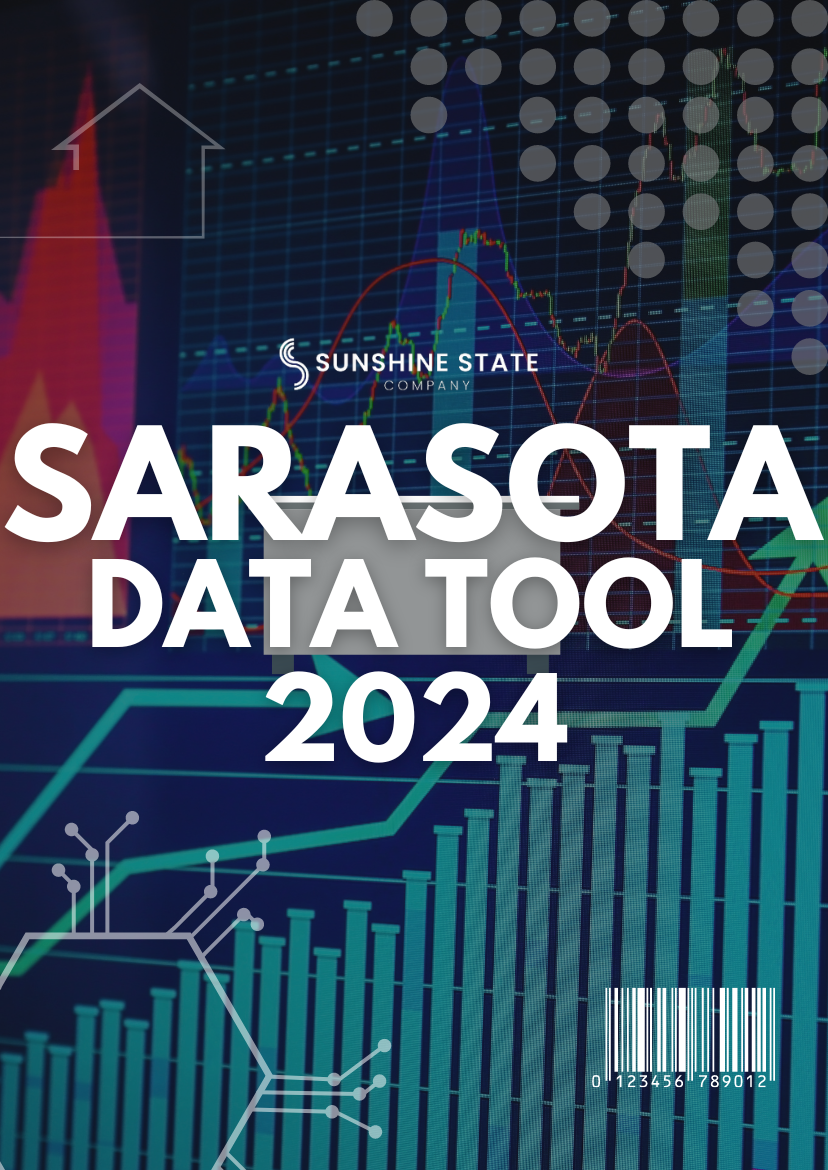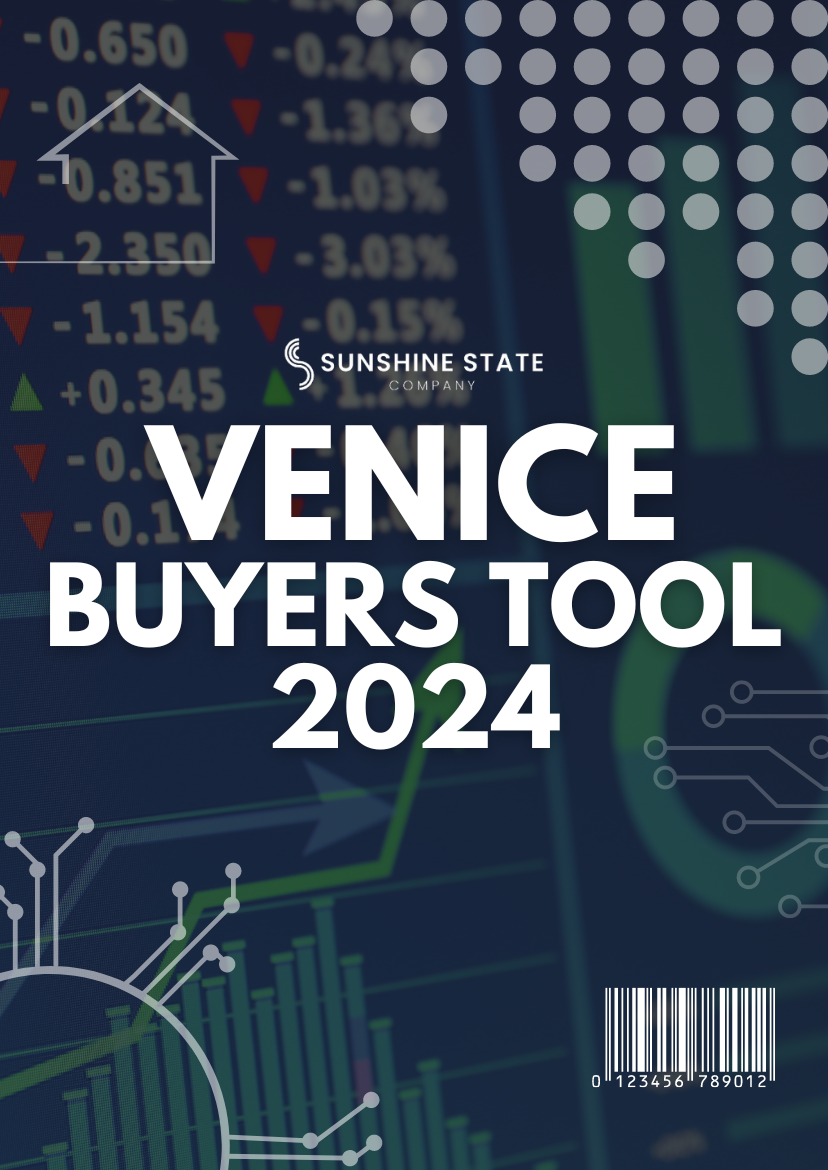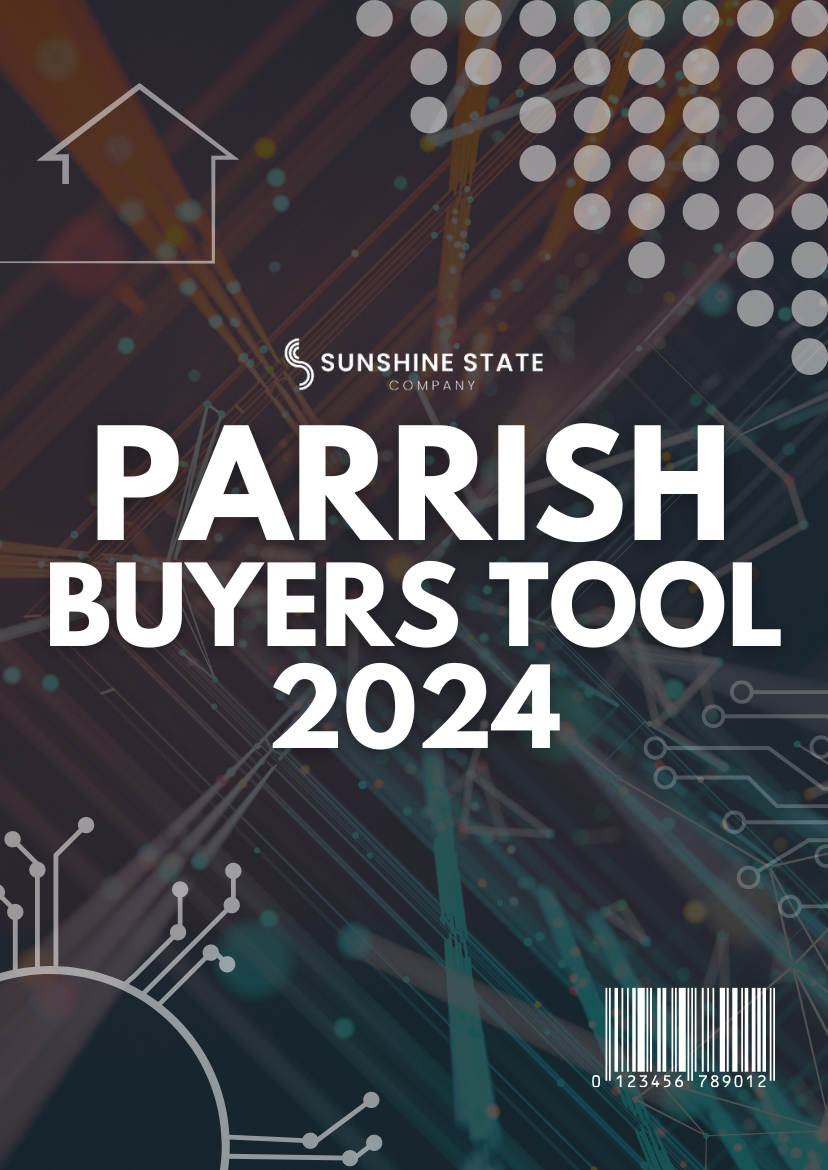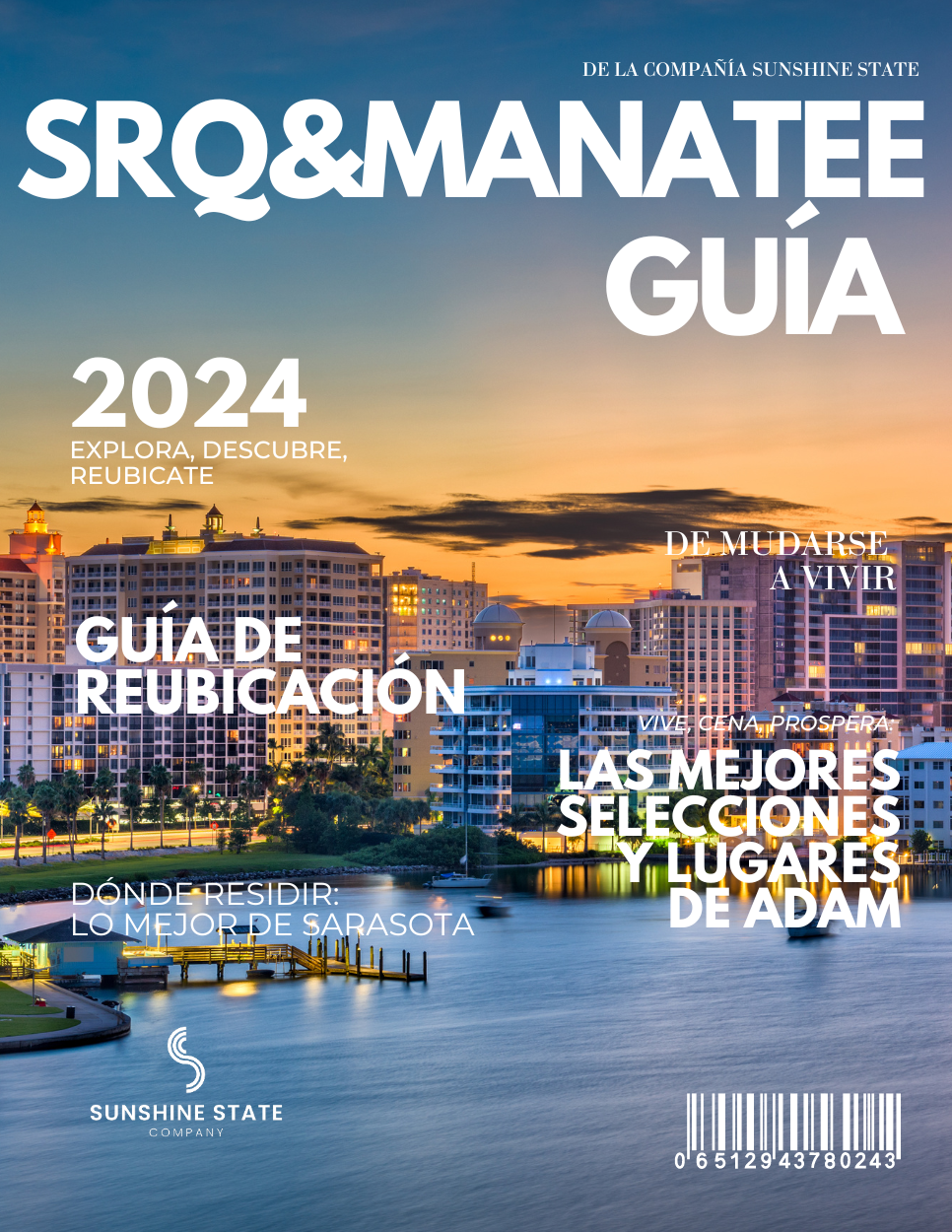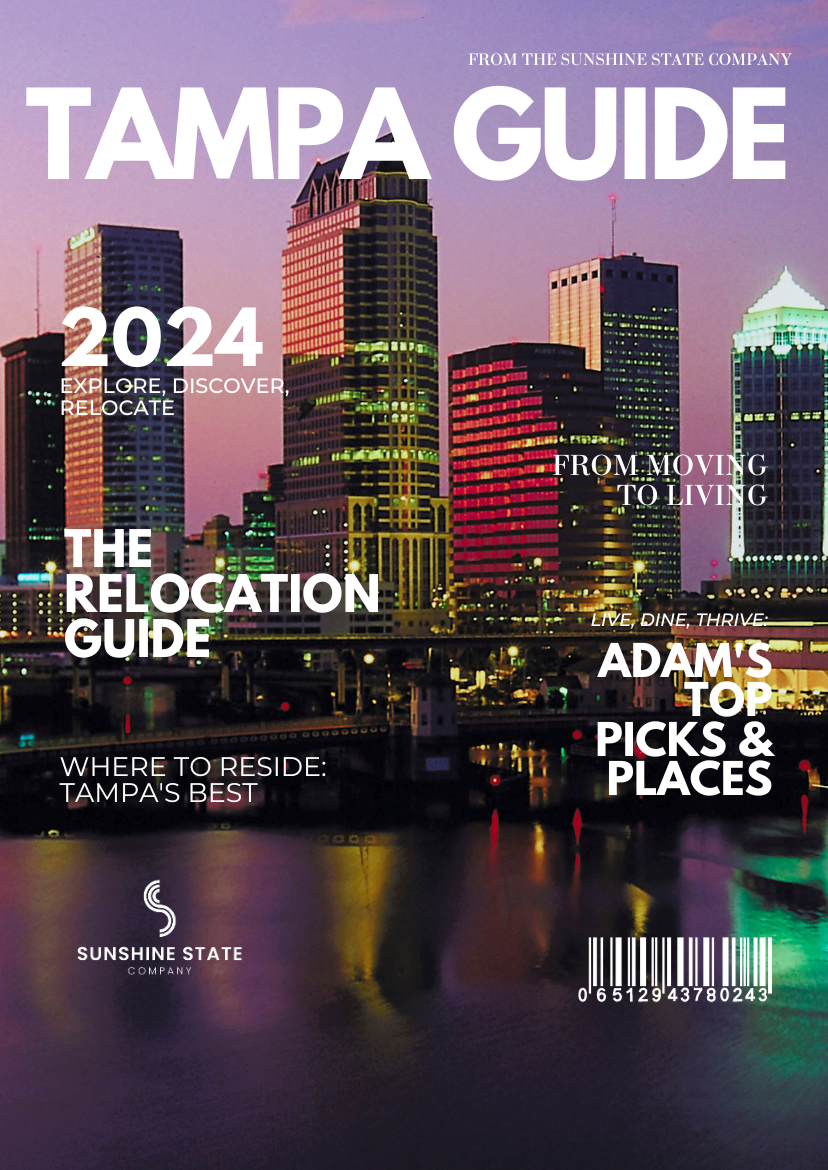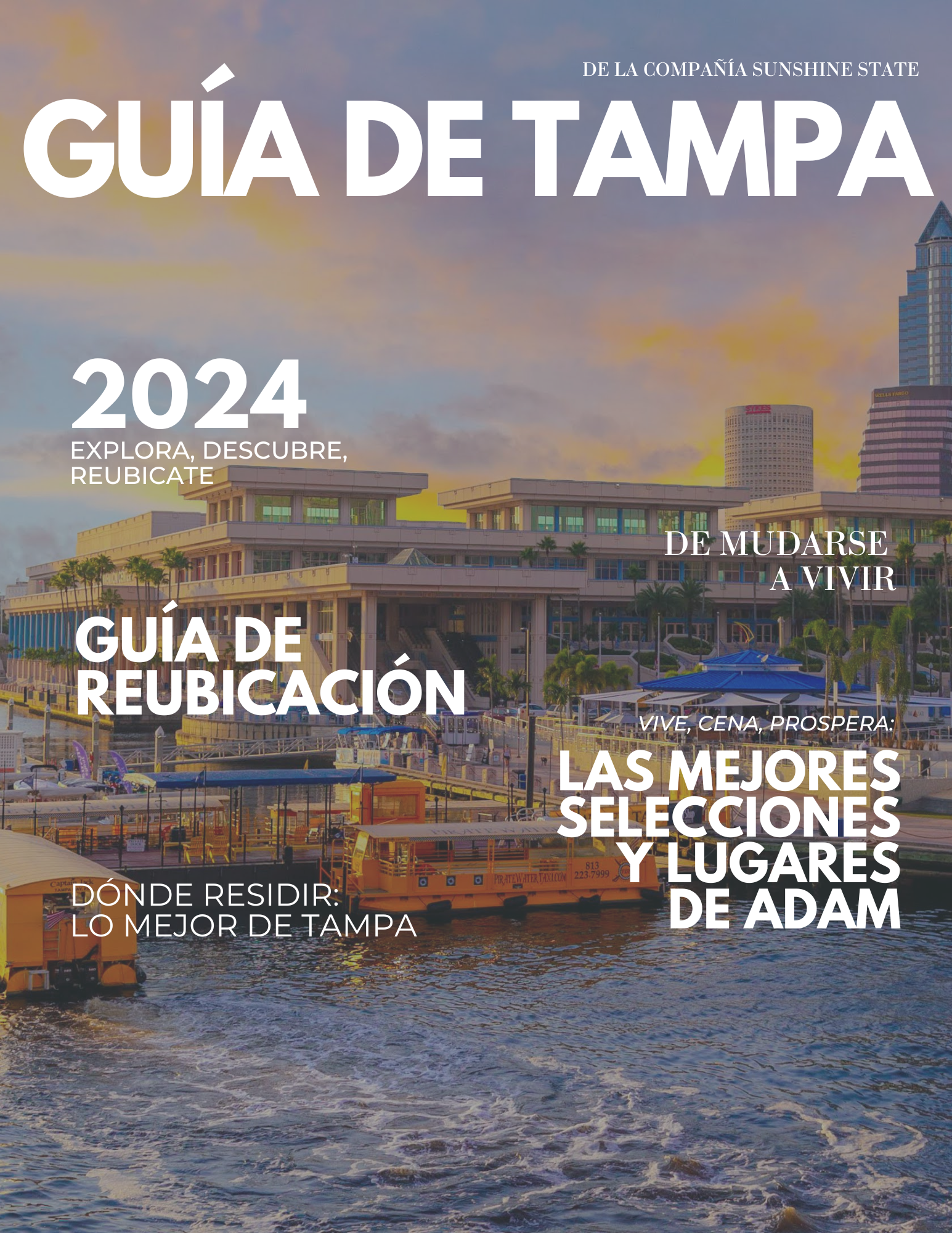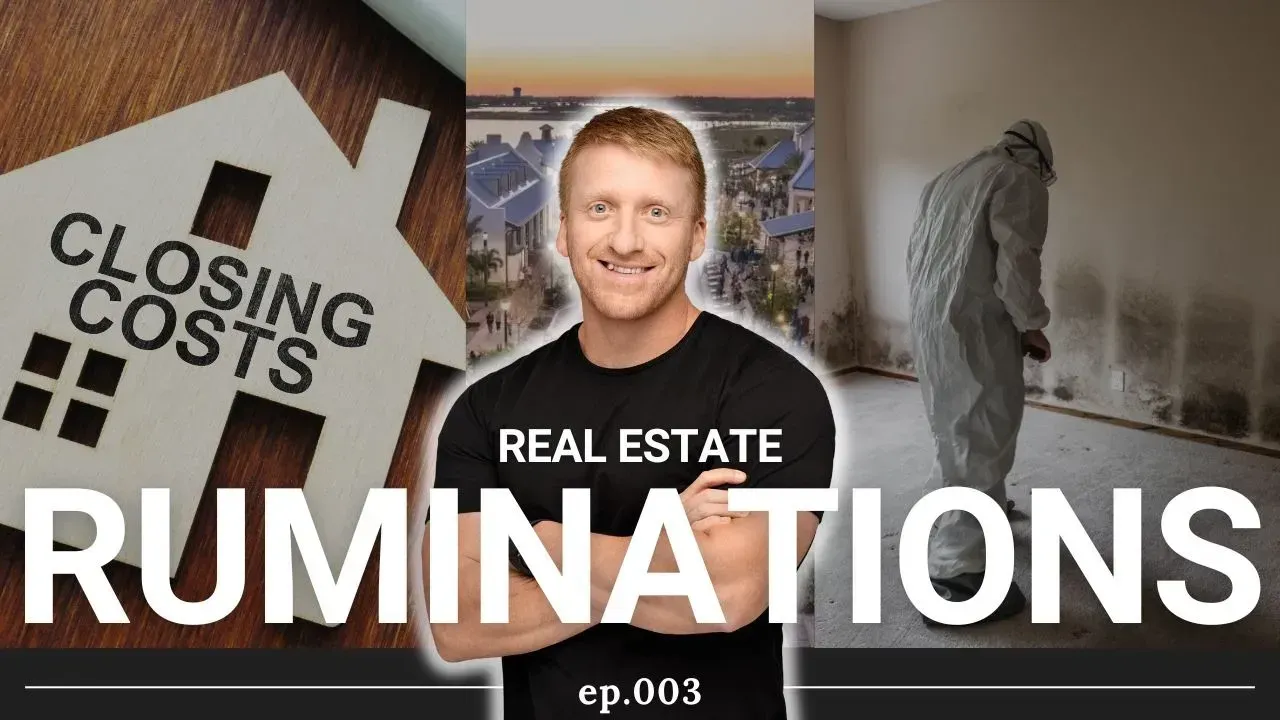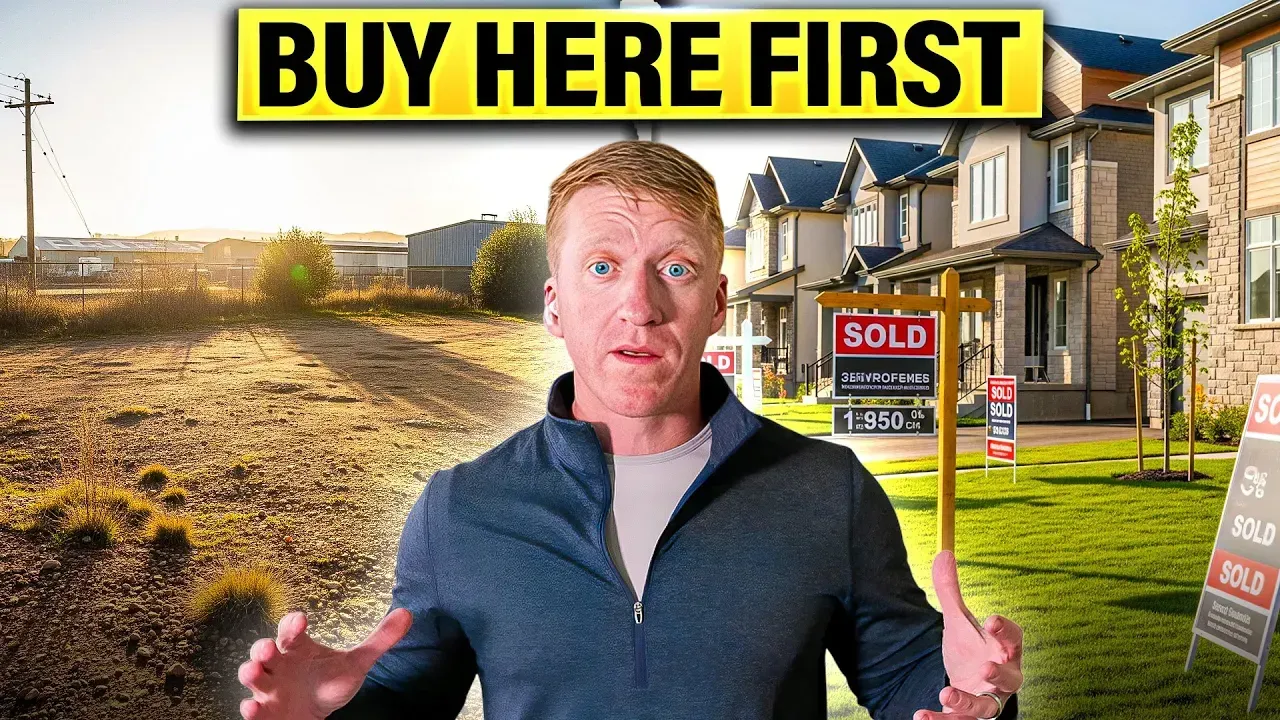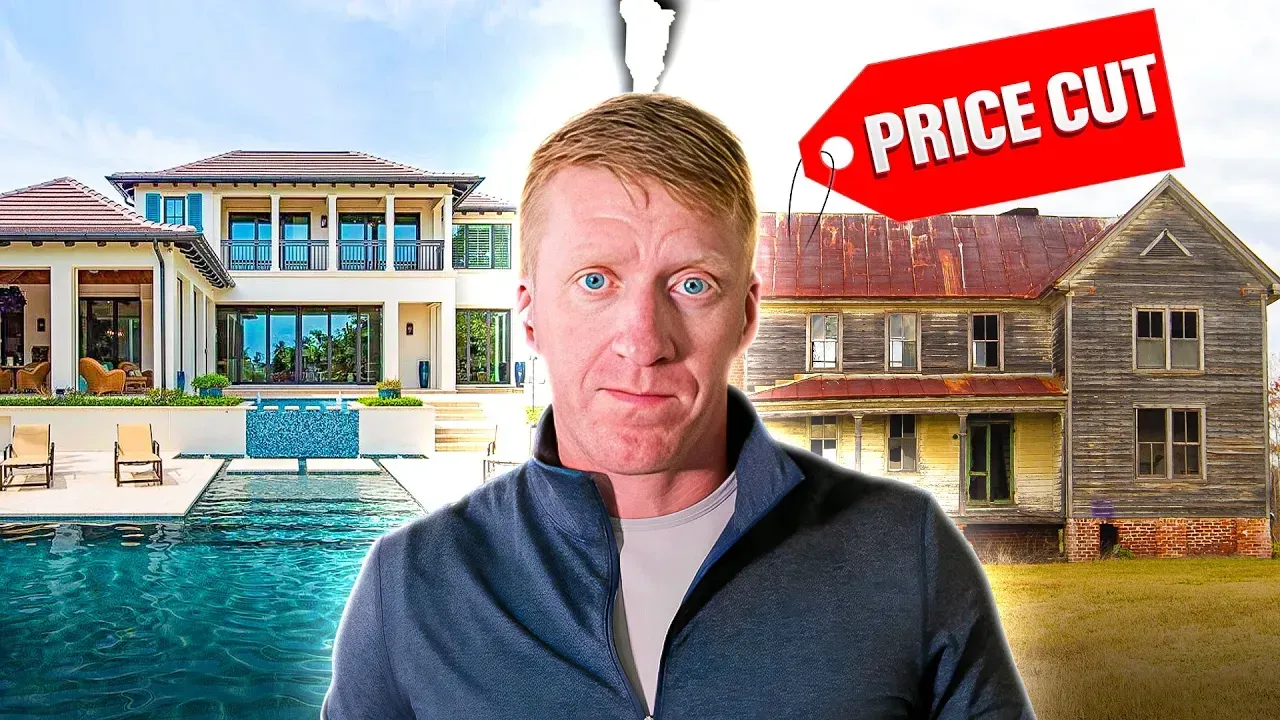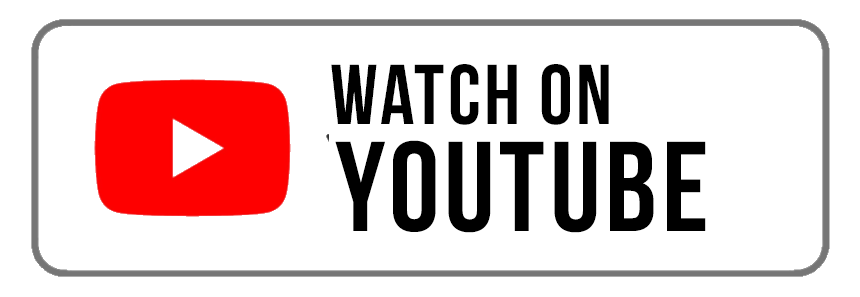This blog article is derived directly from our YouTube Video Podcast (featured at the bottom)
I'm your host, Adam Hancock, and in today's episode, we have a guest named Kasey Truman. And this is her first time on the podcast. We talked just like the title suggests about Kasey's experience buying her first investment property. The reason that I wanted to get this out to the audience, is because if you follow Kasey's story, this is the every-man story as far as if you're looking at doing this yourself. She does not come from unlimited money. She does not come from an industry where she's working a job where you can just come up with an extra 20 grand to buy your first investment property. So, Kasey had to look at this thing as an origin story and figure out how to do it herself. And I think it's very accessible for you to look at if you're looking to do the same thing. She breaks out the financials, she breaks out looking at areas of opportunity versus ones that she might want to reside in forever. She has a young child and she's looking at longevity. So, I think there's a lot of golden nuggets in this story. So, I hope you enjoy today's episode with myself and Kasey, and let's hop in
adam hancock
We are live. As you can see, I'm with Kasey Truman. Thanks for joining us. We're just going to hop right in. So, the first question I want to ask you is, as a newer investor to this entire world, what originally was the motivation behind your interest in doing this kind of investment strategy in general?
Kasey Truman
Sure. Creating longevity, I think is one of the main important factors that I chose to get into real estate investment. As a realtor, it's not like the traditional career that I've come from, where it comes with a 401(k) and some sort of benefit that could be passed on to me either when I retire or if something happens to me, passed on to my children. So, I've always thought about getting into investment properties in general, just to create the potential to have a substantial amount of money when I did choose to stop working in the future. Something that I could capitalize on, whether that's continuing to rent out the properties or selling them if I don't want to continue to carry the burden of handling tenants and property management. Or potentially giving my parents or my wife's parents in the future, or my son somewhere to live after. He doesn't want to live in our house anymore when he grows up. So, a lot of opportunities, I think, and a lot of reasonings why I wanted to initially get into it and Sarasota's the perfect market for it.
Adam hancock
So, you've said I want to invest, and that's like, I think the interest for a lot of people comes before the action part of it. And we'll get into the finance piece of that too because I think the accessibility, I think you're a great example of if people can resonate with Kasey. I think your background, your evolution into this, this isn't like someone gave you money and I think that's a big piece of this.
Kasey Truman
I wish.
adam hancock
Well, let's talk about area first. So, talk about in a macro sense, if you can, how you decided on your first one? That's a big chance, because you might have to stop and save for your second one. So, how did you pick the area? And then you could talk to maybe people aren't familiar with Sarasota, so you can talk to just the macro geography of many towns. But how'd you pick the right area, first property? What went into that decision?
Kasey Truman
So, I think one of the first factors that I needed to consider was the rental restrictions within the two different counties that are closest to me and where I'd feel comfortable buying a property. And that would be Sarasota County and Manatee County. Sarasota County, if you don't live within the actual City of Sarasota where it's a seven-day rental restriction and you live outside of that in a non-HOA community, it'd be a 30-day minimum rental. For this first property, I wasn't really specific as far as monthly rentals or semi-annual rentals. I just really wanted something where I could get somebody in for the whole year to pay the mortgage and make sure that that got taken care of. So, I opened myself up to Manatee County as well. I've lived in Manatee County, and I've rented in Manatee County. I have a gauge of as far as properties that I've lived in and the value which I think that I could gain based on doing improvements to the home once I move in, things that I think other people would be looking for, like good schools across the street or nearby. And then also, I think just coming as a young person with a family myself, I think that there's a lot of other opportunities for younger families who aren't ready to buy yet, that need something that has a decent annual rental amount because they don't have the deposit to put down to buy a home. So, they can afford a mortgage on a house, but it's about getting that initial deposit. So, I was finally in a position where I could do that for myself. But instead of buying a primary residence, I wanted to do something that I could potentially rent out in the future and then move on, and continue to do that process. So, I was a little bit more turned on to North Port areas, and Sarasota, as well as Palmetto and Parrish areas, because the value for the money is just more substantial out there.
They haven't been touched, as far as vacation rentals and things like that where people want to be closer to the beach in Bradenton and Sarasota. So, I wanted something that had good schools nearby, parks, community parks, and different activities that weren't far away, like things with grocery stores and department stores that were within a 10 to 15-minute drive, as well as highway access. Because when people are renting and they're a little bit farther out east, they want highways to be able to get into major downtowns, like Sarasota, St. Pete, and Tampa, for work purposes. So, I was flexible in a lot of ways as far as what the actual house was going to look like, the square footage, and what the yard could potentially look like.
For me, it was all about numbers and finding the right home that had the value that I needed, so that I could buy it with a lower deposit because I knew I'd be renting it out sooner than later. And something that I think could continue to gain value over time based on new construction in the area as well. So, the first property I bought ended up being right on that borderline of Palmetto turning into Parrish, which is just one street, one parallel street south of all the major construction that's happening east of 75.
adam hancock
So, I think you hit on a lot of things there that I think would be valuable to unpack. So, first, this will go directly into our finance conversation, but talk about the strategy of you didn't buy these as investment properties, you bought homes. And then when you buy your next home, you turn your old one into an investment property.
kasey truman
Correct.
adam hancock
So, talk about the advantages of a new home buyer when it comes to liquidity, down payment, when it comes to moving a homestead to a different homestead, and then keeping your other one versus selling it.
Kasey Truman
Yeah, definitely. So, when you purchase a property as a primary residence, first of all, you get to control the deposit. If you're working with a lender that has more tools and products, to be able to open that up to you. So, it's not necessarily using a first-time FHA loan, you don't have to do that just because you want that lower down payment. You could still get a lender who can offer you a 3 or 5% down payment on your first primary residence, which allows you to keep a lot of that money that you were looking to put down as a down payment to renovate the house and make that grow in value as far as equity on the home for the future. And things that renters would want to have in their home, like a newer kitchen and a paved backyard or a screened-in porch, whatever you think that they would want. So, I think there are a lot of advantages that go into doing it as a primary residence. Because although your mortgage might reflect a little bit higher than you want it to with that lower down payment, as long as you feel that the quality of the home could still bring back enough of a rental income monthly to afford that mortgage, then that's essentially all you need. Because now you're bringing somebody into this home, instead of putting so much money into it upfront, you're now guaranteeing that there's somebody else that's going to be paying the life of that mortgage for the next 30 years. So, you're eventually getting a free multi-hundred thousand dollar property for yourself that you could potentially keep renting and maybe make a profit off of, a few hundred dollars here or there.
But ultimately, the goal is to pay off the mortgage with people who constantly rent, so that you at the end of it, based on the value of the home, if the market is in a good flux, whenever you choose to sell, that you're making back a lot more than you even had to put into the property in the first place. So, as far as regular maintenance and things like that, I chose to get a home that had not a lot to go into it, just like small, minor cosmetic changes to grow the value of the home. But all the functionality had to be there. The roof had to be newer, the AC had to be newer, the water heater had to be a newer, full inspection of the entire home had. Nothing that I felt that was going to break my bank or that I had to put a lot of money into.
Renovations that aren't completely necessary that maybe I would want in my home, but I don't need to do that in a tenanted property because somebody's just going to come in there and make it their home when they want to. So, I think it's smarter to go that route. And then there's not necessarily a timeframe as far as lending is concerned, how long you have to live in the home. It's, like you said if you have to save up more money for another down payment to move on to another home. And I'm in a very unique and perfect situation personally, because I have a 16-month-old child who, as he grows, eventually he's going to need to go to a school. And I need to live close by to that school where you can make friends and have things in a different area. So, for me, it's perfect because I don't have to have ties to whatever's in the area. I just need to make a good financially sound decision.
adam hancock
Yeah, no, great point. So, I mean, I think I did the same thing too. A strategy to have a bunch of low down payments by moving your homestead has its place, but you have to have a natural life circumstance that moves you there as well. And to Kasey's point, I think the fraud element is you not being true, but the real investment strategy to it is you do have a growing child. You need more space, you are upsizing a home or something like that, and you just choose not to sell your old home. There's nothing wrong with that. And then you can recapture the multiple homestead benefit of the low down payment. So I think it's a really interesting point because, with all the TV show elements and this Airbnb world, people get so hot on this cap rate minimum monthly ROI conversation.
Most people especially those who would find this video would be empathetic to this video. As newer home investors, they're not buying properties in cash. So, there's not a 10% cap rate that exists with a mortgage. So, can you talk to your value of someone using a down payment and someone paying your mortgage off, and you being much more interested in the appreciation divide of doesn't cost me any money to maintain the property, because they're paying it? But where my gain is going to happen is a long-term view of selling the property because it's naturally going to grow in value. Like month to month, there's no change in my life circumstances. Can you talk about the appreciation versus the idea of monthly ROI?
Kasey Truman
Yeah, definitely. I think earlier I had touched on the fact that I chose to do it in a city where there are a lot of new construction communities that are happening nearby. And that was something that was on my mind as I was deciding which community and which neighborhood I wanted to purchase in. I did end up purchasing a home, it was built in 98. So, it's coming on 25 years old already. And there's already been a lot of love and renovations that were put into it. But I also had in my mind that there are literally 30 new construction communities that are happening on a road just very nearby, and people are spending anywhere from 400 to over a million dollars on these homes. So, naturally, and it's happening literally, I'm in this little portion where Parrish's new construction is up here and all of Lakewood Ranch's new construction is up here.
So, eventually, these will connect. And that's something that I had in my mind when I purchased this property. And I'm not even looking necessarily for people across the street to bulldoze areas and throw up shopping malls. But what's going to happen naturally as all these people move down here, is the infrastructure around us is going to continue to build up. And when that happens, it's only going to appreciate the equity in your own home. And keep in mind, with my particular property, I was able to have an appraisal done and see what other homes were purchased in the area and how much those were valued. So, it has to go both ways. You have to make sure that there's enough around you and that there's potential for growth around you as well.
In commercial with new schools being built, with new emergency services being built, more roads that are expanding and growing to accommodate the population of people that are going to be moving here, but also that maybe you're getting your home at a really good value compared to other homes that are also in your neighborhood. Because when it comes time to sell in the future, what has been done to the property to be able to maintain it and to grow that value when you initially got it, to make the appraisal different? But as the market fluctuates, it's like a wave, it's going to go up and down over time, just like it always does. And there's going to be pockets where maybe you're like, maybe I shouldn't sell, blah, blah, blah. But in the longevity, 30 years from now, that's why you're holding onto the property. People that held onto their properties when they built in Lakewood Ranch in the early 2000s are selling their homes now for double the amount that they paid for them, especially homes that have been renovated and have taken away from that traditional floor plan into that contemporary floor plan, where everybody wants that now. So, I already have a home that replicates that, which is great, even though it was built in 98. And it's a split-level floor plan. So, there's just a lot of things that made it attractive. And the potential for what it could be in the future, I have a lot of ideas for what I'd like to do to it, but I don't have to do that right now. I can do that later so that when I do these changes they're fresh. And the way that that number will appreciate in those next 30 years, I think that's what's going to affect the largest growth.
adam hancock
Yeah, no, I think it's a fantastic point. I mean there's just that, well, one, I think the biggest low-hanging fruit here is that I've had these conversations with so many people. No one knows. No one knows. I get the first one as a guess, but unless you do what Kasey's doing, that's why this episode's so valuable. Unless you do what Kasey's doing, you don't know. No one knows. Everyone giving you advice, there are a lot of people giving advice. The first one teaches you everything. They teach you actually what it costs, actually what that guess you were making means. So, I would say the just doing it element, not flippantly, but matters more than I could describe. But secondly, I think there's a lot of things that Kasey's alluding to that all those conversations of, yeah, imagine if we would've bought property here 10 years ago. All that hindsight investing like this is your chance to explore that. These are areas you might not want to be your primary homestead, but they're the ones that you can guess conservatively. And if you win, you can win big, if you take a long-term view. And it's simple things, as far as I love Lakewood Ranch in Southwest Florida, and picking Parrish as the junior or even going more bullish, and going Palmetto or Ellington or something, or Tampa Bay's version is Zephyrhills versus Wesley Chapel or Naples versus Alva, versus North Naples. These are your chances to take that guess, because renting market, there are no appraisals or anything. It's different. And new construction, you might be someone that doesn't want an inventory bill. There's nothing wrong with it. It is a business model, but you might be someone that doesn't buy Lennar or D or Horton because it's too turnkey.
But what it means to a renter is a new home. No one's touched it. No one's used my toilets, no one's done anything. So, to you it's cheaper, to them, it's a new home. It's no different. The granite versus laminate, versus quartz doesn't mean that to the renter. What you're looking at is the maintenance of it. It's like buying a Honda versus a Land Rover. It costs more to maintain. So, I think it's something to look at. But okay, cool. What I want to do, whatever you're comfortable with, this is what I would've wanted if I could go back 15 years, is I want to talk about the finances. I mean, I think that's very real. All these investment things on YouTube, it feels like, where are these people getting the money from? I had a grandparent that passed away a Roth IRA to me, and that's how I bought my first home. But I could have never done it without a gift.
Kasey Truman
How nice.
adam hancock
I know what I felt about maximizing that gift, but I worked a W2 job. I don't care how much they pay you, it's so hard to save enough money to buy your first one. It is so hard. And then if you don't sell your second and you don't do a home equity line of credit, how do you get the cash for the second on a normal job? So, can you talk to just wherever you want to go with it, but you bought your first one? How much cash did it require? And we're going to get into your background in the next question. But how much cash did it require, the timelines of floating that liquidity of how hard was it to do that for a normal person?
Kasey Truman
Sure. My background and just personal life have fluctuated a lot in the last three years. I had initially looked at buying my first home, which, of course, should have, could have, and would have, in June of 2020. And I had already thought the market was going crazy. I was like, there's no way I'm buying in now because I'm already buying higher than the values of the homes. Obviously, in hindsight, we're now in early 2023, almost summer, and everything's going crazy. I should have bought back then, I would've had way more equity in my home. I probably wouldn't have made as smart of a financial decision though. The problem then, as the problem has always been from the time that I graduated college and went through all the various careers that I did, was that I didn't have the down payment. I didn't have the deposit. I didn't give myself the opportunity to research and speak to lenders in a serious capacity to understand what the actual cost would be and the actual legalities of contracting myself to a property.
I was always scared to homestead somewhere. I didn't know where I wanted to go. I thought I was going to move across the country. Why would I waste my money and buy something when I could potentially be moving to another city at any time? So, I did what everybody did. I met somebody and I ended up going and living where they were raised, which ended me here in Bradenton. And my experience in jobs changed dramatically. I went from being a TV producer to a bartender, to a firefighter, and now I'm in real estate. So, had a lot of backgrounds, which gives me a lot of experience as far as communicating with people. And working in real estate was the biggest leg up for me when it came to navigating other people's decisions from low price points to very high price points, and helping them navigate that entire experience. And what that potentially would look like for me, when I went to make and to have that jump into real estate. I was raised fruitfully with my family, but I was never given large sums of money that I chose to put into real estate of any kind, or never thought to buy a house in my twenties, leading into my thirties. And the only reason that I am now, is because as I mentioned, I have a child and I need to start being serious about where I'm putting my money. So, with real estate, I was able to save a little bit of a goose egg.
I'll tell you how much money I spent out of pocket on this first home. But keep in mind it did come with the commission because I represented myself as a buyer. So, if I hadn't represented myself as a buyer, I would've put about $13,000 into this first property as a down payment. And that was about $5,000 in escrow upfront. And then the remainder of that towards the deposit. I did earn a commission. So, representing myself as a realtor, I only came out of pocket about $1,100 to buy this first property, which isn't the case with everybody. But I knew what I was going to have come back to me.
So, that allowed me to say, okay, well I know I'm going to have this much money coming back to me through a commission, how could I use this in the house? So, I didn't just walk away with cash and think, oh, now I have this extra chunk of money. No, what can I do to put this money back into the home to create value? I was able to buy a property that had sat on the market for about two months. And I had a conversation with the realtor ahead of time and knew that the seller was highly motivated. So, I did what I would never encourage any of my clients to do and I went in with a little bit of a lowball offer trying to capitalize. And I also asked for money back at closing, because I knew that that would help me too when it came to putting in a deposit, as well as my commissions. I knew that that would give me less money to have to bring to the table that I could ultimately use on the home later.
So, the home was listed for about 430. We came to terms right around 350, which is good because that came back at appraisal value. And I was able to negotiate a good chunk of change back at closing. So, all in, the property was worth about 340. So, that puts me under appraisal as far as how much money I potentially will be investing in it in the long run. But as long as I continue to maintain a tenant, depending on how long I choose to live in the property and once I move it on, then the renters will potentially be paying that property off for me. So, the value in the area and what homes are selling for, as far as new construction and how things have grown over the last two decades, from resale value to what the equity is within it now, I mean, the sky's the limit.
The house itself will say and project how much the home could potentially be worth in the future. Because I could build additions, but that would require permitting in the county. But the house itself, it's not going to grow in size unless I do something to it. But what will grow is the area around it. So, financially, I think it was probably the smartest decision. I almost jumped on something a little bit too high out of my budget, which wouldn't have allowed me to have the freedom that I still to maintain the mortgage while I'm living in it, as well as be able to do the things that I want to do in the meantime. And it was close enough driving distance that I was only adding about 15 minutes to my drive from living within city limits. So, I knew that ultimately, no, it wasn't the home that I wanted to homestead, and it wasn't the city that I wanted to live in long term, but I knew that there was great potential. Because like you said, you never know, but I did know there was a great potential based on everything that was around it, that I can get somebody to live in that property in the future. And let me know if any of you watching want to know the details.
adam hancock
Give you all the ways you can get in touch with Kasey. Well, so, let's park there and run down this lane for a minute because this is an interesting one. So, my background, I had zero money and I went as corporate as it gets, my whole background's in economics and analytics, all corporate America. And I know full well what all my peers, all these people that like, all the glass house stuff, people making 115,000, $200,000 a year and it still doesn't carve out some magic way to cash. It does not. It's not an efficient income. So, can you talk to just for a slight minute of the niche crowd that is in the 1099 general world of basis, bartender, all that kind of stuff, of the independence of how you were able to do this was through extracting in a sales manner, extracting cash where you could come into $13,000 randomly?
If you make $100,000 a year, trying to save that, it's very hard. It's very hard to extract it after taxes. So, if we cover this in your background, your evolution over a couple of years, it's how we met and you covered it a little bit. It's been a hot button to me and for personal for a minute, it's been a hot button to me of that big rush it feels like when you're in your young twenties. I think a little bit of it's a fool's errand of rushing because I do think you could figure it out a little later in the right scenario. And I do think independence is very key for being able to make independent decisions and be able to take advantage of opportunities when they present themselves.
Not just flirting around, but I do think to get liquidity to buy real estate without someone giving it to you, it's very hard to get it from a W2 job. Is there anything you have to add to that? I mean, I know in your experience, I think it would be relatable to a lot of folks that feel like this would be a pipe dream.
Kasey Truman
I think, honestly, people need to start becoming more comfortable with taking risks because nothing's guaranteed. And if you are working a more standard W2 job where you know how much you're going to be making every day, then you're budgeting. And you how much you have to spend to do recreational activities, and you know how much money you need to have at the end of the week to pay your bills. So, it's harder to do that when you don't take risks. But setting yourself up with a really good savings account and talking to wealth advisors and people who are more financially sound very early on, I think is ultimately what started gearing my brain in that direction. Why aren't I utilizing my money better? Why aren't I putting more money away monthly or into something that's potentially a post-tax account, that I could pull out early without getting penalized, like a traditional 401(k)?
I think that you have to feel comfortable with cutting corners as far as vacations yearly and stuff. There was a potential and it was the pandemic for me, so where could I go? I was able to set aside a good chunk of cash by not going on vacations. But it becomes a question for me of what's more important at this moment in time. Would I rather have the money and put it into something where maybe I won't potentially see the return on that anytime soon, but maybe be able to retire in my fifties as opposed to my sixties? What's more important? And that's always been a difficult conversation for me in my twenties as you mentioned. I was always very much like live life to the fullest. No day is promised, go hard every day. Work hard, play hard, that was always my go-to and I would have tons of fun all the time.
But as I matured and got more life experience and went through more opportunities where it wasn't so much about my selfish desires, but more me making personal sacrifices to better my family and to better my future, it says, well, okay, now I have this money set aside. Now I have these goals. How am I going to implement that? And maybe that is not going out after work that day. Maybe you save that money that you would potentially spend going to have a couple of drinks with your coworkers and put it into some sort of account where you don't touch it. That is one of the biggest things that helped me, is I opened an account at a bank and it was just a deposit account and I had no cards linking it. So, that account just continued to grow and it also was an investment checking account. So, it continued to bankroll on top of the money that I was continuing to put into that.
I know it's not high percentages, but it's something, and at least I'm not looking at it every day. It's not in my normal bank. I don't know if it's sitting there and if I can pull it out for bills or whatever I need at any moment in time. It's in a completely different account. Don't link your apps on your phone to it, just leave it there. So, those are a couple of things I think that helped me. But really, it was about when opportunities are presented, it was about taking a leap of faith and trusting that I can do it without other people navigating me and giving me all the tools. The tools that you use to eventually progress as a human being are tools that you gain through life experiences and by trusting yourself to make the right decision.
So, do I know that this financial decision is ultimately 100% going to be what I want it to be in the future? No, I don't know that 100%, but I feel comfortable in it because I trust myself. I trust myself to make good decisions based on all the careers that I've had, bartending, having conversations with people that live in the same city that I live in, having conversations with people who have a life that I want in the future, and seeing where they have gone based on doing the same model that I'm doing right now. So, highly encourage that, talking to any of your peers who potentially are doing the things that you wish you could be doing and what they did, how they started, and what they did to put that money aside. And try to analyze your life and see if there's room for you to grow in that capacity.
adam hancock
Yeah. I mean I think you're a great example of someone that like, in one circumstance people were like, I want to get out of the service-based business and I want to do this and this and this. And you're someone that, I met you, I was like, this applied in a different direction. My analytics applied to real estate. I mean, if you peel back these certain professions and you look at it the right way, you're like, you're talking to high net worth people. You're controlling your mixed company. It's charismatic. And to act like that's not a life soft skill that's applicable, I think it's a shortsighted way to look at it. So, I think all that stuff matters if you look at it the right way.
kasey truman
And I think other people potentially, just to say, that are out there could have all those same tools. It's honestly about trusting yourself and taking the jump. You just have to trust yourself to do it. And if you don't, then you're just going to continue the routine.
adam hancock
Yeah, 100%. You bought your first investment property, hit me with five years in the future. What is the dream as far as an investment portfolio?
kasey truman
Five years from now, my son, who's now 16 months is going to be the summer before he would start kindergarten somewhere, five years old. So, that's a very real thought for me, because I have five years to do what I want before I have to homestead somewhere that needs to be in the best possible company for my child to go to school, to have friends, recreational activities that surround him, to be able to grow up in a good environment. I think a flex goal would be to have a property for a year and be able to do what you mentioned, getting a HELOC out, an equity line of credit in one of the properties to continue to bankroll and continue to do primary residence loan based on the needs of my family. So, my wife and I, not to get too personal, are thinking about having another kid at the end of this year. I just moved into a three-two.
Does that potentially work for having another child? No, not if I want people to visit and share the space inside my home. So, I already know that it works for now, but it's not going to work for later, so I'm going to have to move on and move my homestead somewhere else. So, the goal would be to do that. And then the difference of having a newborn versus a toddler, as you very well know, is very different. And you need the space to accompany that. So, maybe having something with just a traditional living room isn't going to be what I need in the next three years. I might need something with a bonus room. So, my family, in my specific experience, it's naturally going to navigate that way for me. I'm going to have to keep moving on and moving my homestead into larger homes as my family grows, as well as where I'm working and where I feel like the majority of my business is.
So, my five-year goal would be to have at least five properties by the time my child starts school and to have renters in all five of those properties. I want to have eventually moved on into a home where I can see my family living for a good chunk of time. And not only that, but to get my finances to be able to, at that point continue to grow my investment portfolio. Now looking at it as having the possibility of having to put down larger deposits, as opposed to primary residence loan deposits, like 5%. Now it's looking like if it's not my home, it's a second home, then it's going to be possibly a 10 to 20%, depending on that situation. And that all depends on your finances too, your credit score, your debt-to-credit ratio, all that kind of stuff.
So, that's a big goal for me. And obviously, I'm going to need to continue to do well in real estate to get myself to that point, and to continue to grow my sphere within the City of Sarasota in general. But also to continue to meet people who could help my business grow, like vendors, different lenders, but potentially people who could offer my clients, as well as myself more opportunities to do things at a level where financially it feels like a comfortable thing to do, as opposed to trying to get the best of the best. You know what I mean? Just exchanging relationships with people so that you can help people in the future just like they can help you. And that's all, to me, all of my careers have ever been, is creating relationships and learning people's backgrounds, and getting to know people in that way.
I think that my favorite part about real estate, about the potential of having this investment portfolio, is just the opportunity to get to meet people and to teach people what I'm doing and how I can better help them. And with real estate too, because once I dived in and got to know, I was just talking about this with my wife you're just so afraid of it. You're so afraid of buying a house. It's like such a process. You're like, oh, my god, it's the biggest decision of my life. But it doesn't have to be like that. Nobody's saying you have to buy a house and live in it for the next 30 years. You buy a house for what works. You trust people to get it done, lenders, and people who are going to handle your title and closing. Or talk to people who are familiar with this process and get to know what they're doing. It's not a secret. People buy homes all the time. And the only way you're going to get more comfortable with that process is if you open yourself up to be vulnerable and to have those conversations with people.
adam hancock
Yeah. No, I love it. Let me give you one finisher. So, you can go as wide as you want to go as far as Southwest Florida versus just Sarasota. But 2023, I mean, yours is pretty recent, so it's in real-time. Give us three communities that people, they're targeting Metro in southwest Florida, give us three that you think could have advantageous opportunities as far as a first or second investment property.
Kasey Truman
Two new constructions are popping out to me, two completely different demographics, the first one is Del Webb BayView in Parrish, 55 plus. If you don't know it, you should, as far as 55 plus communities in the area. Best amenities I've seen potentially all of Southwest Florida comparatively. Key private locations as far as home lots, are reasonably priced. You can get something in there for 450 if you're good with the two, two with a flex. And you can get something in there for over a million if you want. Those big lush lot water views, pool, spa, the works, gourmet kitchen, all that. I wish I was old enough to buy in there right now because I love that community. But another one I would give, family centric, want to be in Lorraine Lakes or want to be in Lakewood Ranch, I just gave it away, but don't want to spend a premium budget, I would say Lorraine Lakes.I mean it's more of a cookie-cutter neighborhood than maybe some people want, as far as all the houses looking the same. But the number of floor plans that they offer, I think they offer 18 different floor plans in that entire community. The amenities are going to be opening up at the end of May. It's going to have a restaurant and a bar, and it's going to have a fitness center, and every sport court you can imagine. It's potentially something that I'm looking at for myself in the next five years when it comes to that. Aside from that, Star Farms and I think Sky Ranch, are the only three communities, new construction-wise, east of 75 that are within that Bradenton, Sarasota limits that are going to have those kinds of amenities that aren't a golf community, like Lakewood National and Esplanade at Azario. So, that would be another one.
And then resale-wise, I got to give a shout-out to my West Bradenton people. I think that that city and that opportunity, and I think potentially maybe what people hear is what keeps them from buying there. But the value of the homes for the money. You are 10 minutes from the beach, 20 minutes from Downtown Sarasota, 30 minutes from Downtown St. Pete, and 20 minutes from Lakewood Ranch. It is very centrally located. You have water on all sides of you. And I would argue it's one of the last classic beach towns in Florida, comparatively without having to pay a ridiculous amount of money to be a part of the community. So, those are obviously in my mind, as far as buying property in the future for myself or my family, or possible investment properties, I think that they're all three really smart financial decisions with the potential to grow in equity over the next 30 years.
adam hancock
Thank you, Kasey, for joining us. I think we'll wrap up there. I think Kasey's a great example of its one opportunity, it's one house. I think Kasey's story and her background and financial situation can resonate with a lot of folks. I think we just got a little bit too much in this delusion that everybody can buy an investment property. If you buy a true investment property at 20% down, it's a lot of money. And to do that multiple times is not that common. This is a much more normal way to do this kind of thing. It's not crazy. It's just saying, I want to buy a house. And the average first-time home buyer is in the thirties now I think. I want to buy a house and I'm just going to have some plans of maybe the exit in the house I also live in.
I think that's a very reasonable strategy. So, I think it's an approachable way to look at the whole thing. So, Kasey and I, I mean we're like a few years in age apart, but it's very similar kind of backgrounds. It's getting a shot and then that first pot of money, using the equity appropriately, that's what funds the rest of these things. But it's an interesting way to get ahead if you think it's inconceivable for you. So, Kasey, thank you so much for coming on. I hope this provided a ton of value and we'll see you on the next one.
Categories
Free Relocation Guides
The YouTube Channel
Watch The Latest With Adam Hancock
Each week I'll give my view on everything from the best neighborhoods around Southwest Florida and new construction communities.
One of the most unique things about our brokerage is how we view the real estate experience!
When you work with The Sunshine State Co team you get Adam, the broker, & your own dedicated agent. This formula provides clients with a full-time market researcher (aka - the best info possible), read more...
LIke Free stuff?
Florida guides, tools & more!
The absolute SMARTEST way to relocate and/or invest in the entire state of Florida. We create an abundance of original, value-based and economics-first resources to equip our clients for the real estate market ahead. Smarter buyers are more savvy buyers!
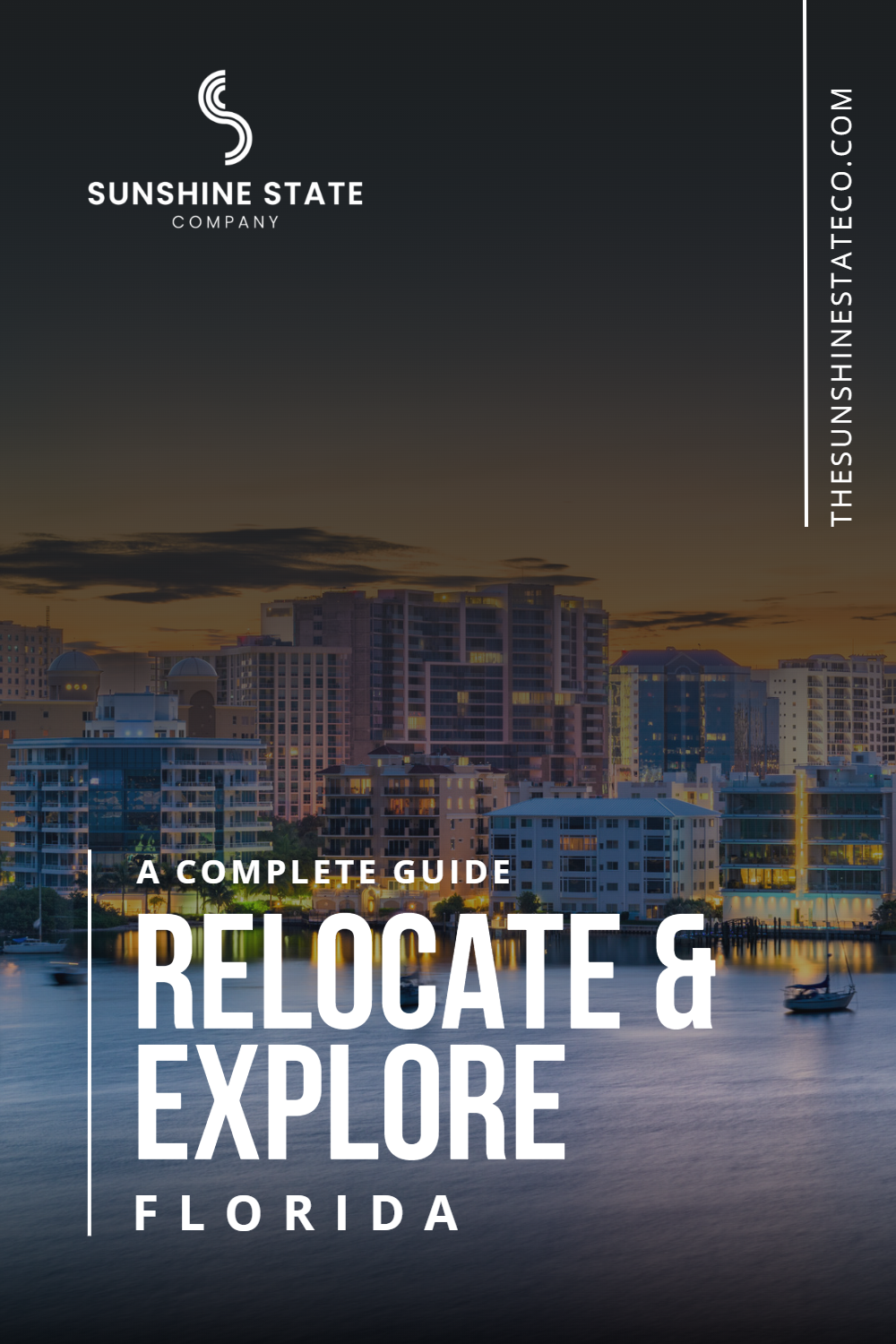
Sunshine State Company
Ready to take the next step?
Let's schedule a meting! During this initial consultation, we'll learn more about your situation and what you're seeking in a home. We'll provide advice and address any concerns you may have, in order to determine the best approach to achieving your goals. By the end of our conversation, we'll have a solid plan of action and next steps for moving forward.
